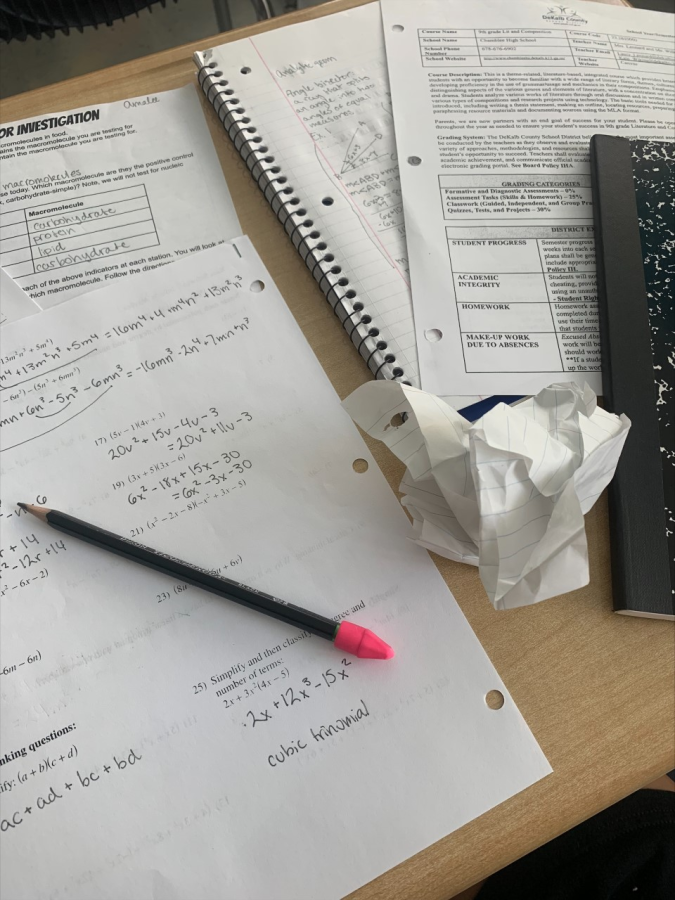How Much Work Can Students Handle in the Magnet/Gifted Program?
This year, the pressure is on! With school back in full swing after a good, hot summer, homework and notes are building up, especially for magnet/gifted students. Throughout the first four and a half weeks of school, schedule changes and makeup work built up because many magnet/gifted students weren’t put into the right level classes originally.
Many students in the program had delayed schedule changes, and even those who didn’t had problems, making up late work has still been difficult from teacher to teacher.
“I was out sick for a week, so I had to do a lot of makeup work. I wouldn’t say that teachers have made it difficult [to turn in late work], but it is definitely more challenging because they don’t give you a day to do late assignments before having to deal with what’s due currently,” said Trisha Kamat, a freshman magnet/gifted student.
Many students who were absent on Friday before labor day weekend also had some late work to complete .
“I wasn’t here for Labor Day weekend so I had to come in early and make up an assignment of AP US history. I also had to stay after school to make up a math quiz, but I was supposed to have work, so I had to tell my boss that I was going to be late because my teacher said that was the only time I could do it,” said Tiller Johnson, a magnet/gifted junior (’24) at Chamblee High school.
If making up late work and finishing missed assignments wasn’t stressful enough, the average amount of work each student has, is not proportional to the amount of time they have to complete it each day, with sports, clubs, and jobs (for some students).
With this said some students think that there is enough time to complete homework after school with given extracurriculars.
“So far in the school year, my teachers have not given a lot of homework so the time it takes to go to [cross country] practice does not affect the amount of time or stress that homework takes. I think if you try to do the work you pretty much always have enough time to get it done,” said Eli Jacobs, a freshman (’25) gifted student.
While this is quite a positive thought about workload-balance, Kamat had an almost opposite opinion.
“[Teachers] don’t realize that there are seven or six other classes that give you work so it feels like it’s a lot,” said Kamat. “Also with sports, you usually have an hour or two practice every day and then you have games during the week and over weekends. On-top of that, you have clubs, you have to take care of family needs, siblings, pets, or anything else at home. Also with the workload there is just no time to de-stress and get away from school while also being expected to get eight to ten hours of sleep every night.”
All in all, work in the magnet/gifted program can be stressful and overwhelming for some students, and the delayed class changes don’t help with that matter.
Your donation will support the student journalists of Chamblee High School Blue & Gold. Your contribution will allow us to print editions of our work and cover our annual website hosting costs. Currently, we are working to fund a Halloween satire edition.

Amalee McWaters (‘26) is a sophomore and Staff Writer of the Blue & Gold. In five years, she sees herself studying journalism at university in Austria. Her three favorite things are music, fashion, and journalism.

